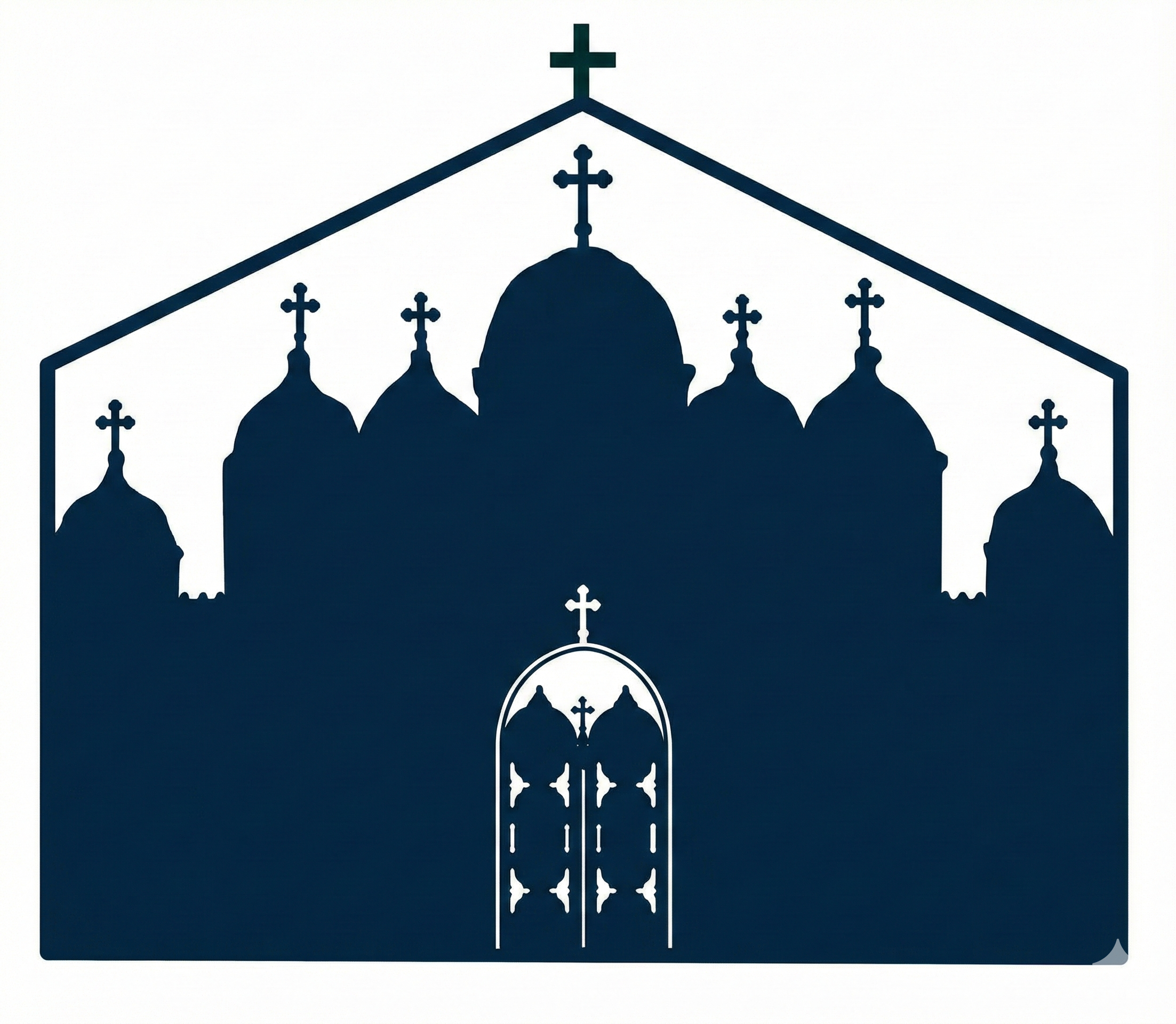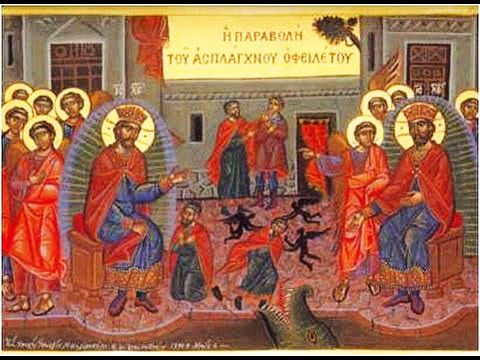Matthew 18:23-35 2024/09/08 Osaka Church
In the name of the Father, and of the Son, and of the Holy Spirit
When the time came to settle the accounts, the king asked one of his servants to repay his debt. It was a debt of 10,000 talents. It was an unbelievable amount of money. It was the wages of one worker for 160,000 years. It was truly astronomical… There was no way it could be repaid. Jesus showed the gravity of the sin against God that humans have been deepening since the Adam and Eve with this enormous debt. People can not atone for this sin by their own power. Of course, the king’s servant cannot repay it either. So the king ordered that he repay the debt even if he had to sell his property, himself, and his wife and children as slaves. This was not nearly enough to use as collateral for the enormous debt that could never be repaid… But for this servant who loves his family, it was an unbearable condition. The servant knelt down before the king and begged for an extension of the repayment. The king felt pity for the servant who knelt down before him, making what were, so to speak, empty promises that could never be kept. Rather than being angry at his dishonesty, He forgave him and even forgave the entire debt.
So what did the forgiven servant do?
On his way back from the king’s house, thinking, “Thank goodness, I’m saved,” he met a friend to whom he had lent a hundred denarii, which was nothing compared to the amount the king had forgiven him. However, the servant strangled his friend and demanded that he pay back his debt. Even though the friend knelt down and begged him, he did not forgive him and threw him in prison. This is also the cruelty of us who do not forgive others, and imprison them in the pain of knowing they have not been forgiven.
When the king heard this, he became angry and said, “Should you not also have had mercy on your friend as I had mercy on you?” and finally threw him in prison.
The drama has now reached its” joyous finale,” our favorite story of rewarding good and punishing evil.
However, if we were to cheerily applaud this ending, it would only make God even more sad. In the end, we do not truly understand God’s love, just like this cruel servant. We only applaud the king who punished this cruel servant, but do not understand the king’s, that is, God’s, sorrow. We have completely forgotten our own sinfulness, and the grace of forgiveness of the incredibly generous God has been brought to us as a concrete reality in the form of Jesus, who offered himself on the cross. Yet, we judge others, feeling like we are on the side of justice, and thrusting the “Cross ” against the “bad guy,” and spiting out, “serves him right.” in our hearts。
Christ concludes the parable like this:
“So will my heavenly Father do to you, if you do not forgive every one of your brothers from your heart.”
This may sound like I am teaching that forgiving our close neighbors is the “condition” for being forgiven by God, but that is not the case. Rather, opening our hearts to God’s limitless forgiveness and love, accepting it with joy and gratitude, and becoming able to forgive our neighbors, even if only little by little, is what “forgiveness” is to God. “He was thrown into prison,” says Jesus in the parable. But it was not the king who put him in prison. It was we, who do not forgive others, who do not accept God’s love and do not understand God’s sorrow for us who are unable to forgive, and who lock ourselves in prison. Jesus did not appease God’s anger by offering himself on the cross. Rather, we should say that he appeased God’s sorrow by the incredible love he has for us there.
Jesus’ words, “If you do not forgive, you are not forgiven,” are an encouragement from the Lord’s love, who considers us who are weak in faith and wants to give us the courage to forgive and the joy of being forgiven by God.

